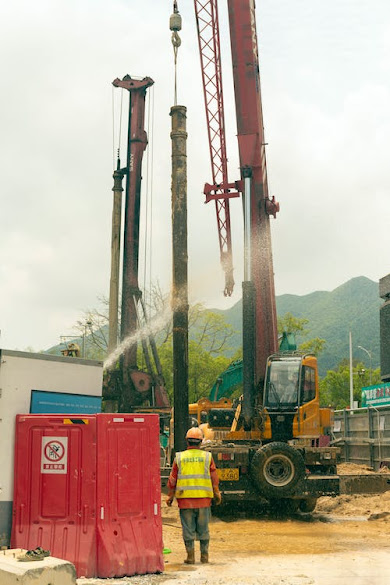Occupational accidents occur regularly. In fact, the
International Labor Organization estimates 2.3 million cases each year, resulting in
costly workers' compensation claims, medical expenses, and lost productivity.
As a business owner, you are responsible for ensuring your
employees' safety. This means creating and enforcing policies that will
minimize the risk of injury in the workplace. But where do you start? What are
the best practices for ensuring safety in the workplace? Here are a few tips to
get you started:
Define expectations and roles
The first step in employee safety is to create a culture of
well-being in your workplace by defining expectations and roles. Everyone in
your organization should know what you expect of them when it comes to their
welfare.
For example, you may want to create a policy that requires
employees to wear protective gear when working with dangerous materials. You
should also clearly communicate who is responsible for enforcing safety rules
and investigating accidents.
When you clarify their roles and expectations, you can create a shared understanding of what it means to be safe in the workplace. As a result, your employees will be more likely to take responsibility for their safety and the safety of their colleagues.
Create a safe work environment
Another critical step is to create a safe work environment.
That means taking measures to minimize hazards and make it easy for employees
to follow safety rules.
Investing in the proper safety tools and materials is an
excellent start. You may want to provide sufficient lighting and signage in
areas where there is a potential for accidents. You should also ensure that all
equipment is adequately maintained and in good working order.
By taking a proactive approach to safety, you can make it
easier for your employees to do their jobs without putting themselves at risk.
This way, they can stay focused on their work and be more productive.
Train employees on safety procedures
It's not enough to tell employees what they need to do to
stay safe; you also need to train them on how to work on safety procedures. Not
every employee will be familiar with the same safety protocols. So, it's
crucial to provide tailored training that covers the specific risks in their
work area.
New employees may need to get trained on how to use specific
equipment. Others may require refresher courses on safety procedures that they
haven't used in a while. Assuming that employees will remember what they
learned in their initial safety training is a mistake. Employees' skills and
knowledge can degrade over time, so it's essential to provide ongoing training.
Regular training sessions are the best way to
ensure that your employees are up-to-date on the latest safety protocols. So,
make sure to schedule them regularly and make attendance mandatory.
Prepare your work emergency kit
Of course, even with the best safety measures in place,
accidents can still happen. That's why it's essential to be ready for
emergencies.
This kit should be readily accessible in prominent locations
throughout your workplace. It should also be well-stocked with first-aid
supplies appropriate for injuries that could occur in your workplace. Other
tools, such as emergency equipment, fire extinguishers, and blankets, are also
necessary. You can get these items from a trusted pharmaceutical
company or healthcare retailer.
You may also want to include contact information for
emergency services in your kit. In doing so, employees will know who to call if
they need help. When everyone knows what to do in an emergency, you can respond
quickly and efficiently.
Investigate accidents
When accidents do happen, it's important to investigate them
so that you can determine what went wrong and take steps to prevent similar
accidents in the future.
The best way to conduct an accident investigation is to
assemble a trained professional team. This team should include representatives
from different departments within your organization. They should also be
familiar with the procedures for conducting an investigation. The goal of an
accident investigation is to identify the root cause of the accident and make
recommendations for preventing similar accidents in the future.
Be transparent in the investigation process so everyone can
feel empowered to make changes that will improve safety in your workplace. With
their help, you can identify any weaknesses in your safety procedures and make
the necessary adjustments.
These are just a few of the best practices for ensuring safety in the workplace. By taking these steps, you can create a culture of safety in your organization and reduce the risk of accidents and injuries.








No comments:
Post a Comment